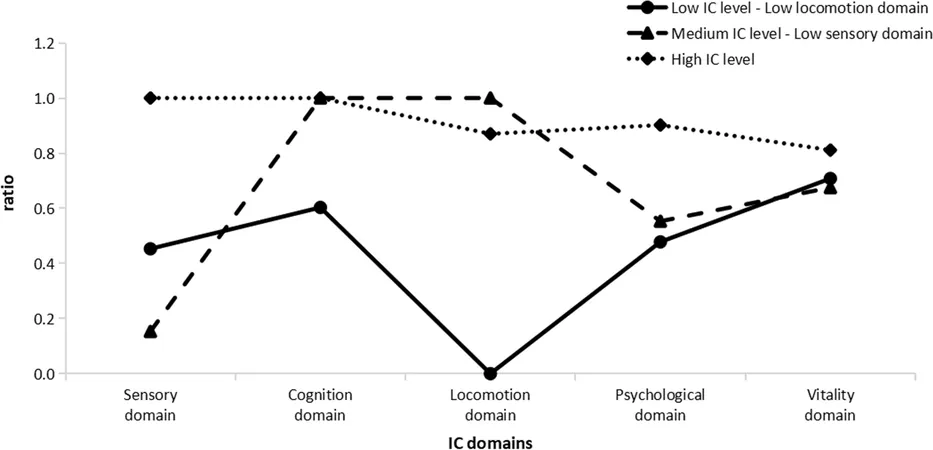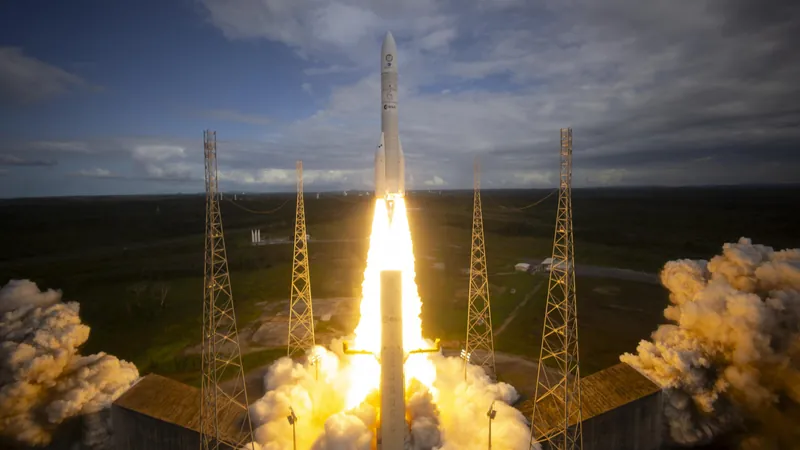
The Astounding Discovery of Complex Organic Molecules: Are We Alone in the Universe?
2024-12-22
Author: Jacques
Recent revelations from space missions have unveiled a treasure trove of complex organic molecules in our cosmos, leading scientists to reconsider the very origins of life. With the European Space Agency’s Rosetta probe making waves through its two-year examination of comet 67P/Churyumov-Gerasimenko, we are beginning to understand that the building blocks of life may not just be confined to Earth.
Organic molecules, essential compounds composed mainly of carbon, are surprisingly abundant across the universe. They play a critical role in forming the stable chains that comprise a multitude of biological compounds. The Rosetta mission alone identified over 44 different organic molecules—including glycine, a fundamental amino acid crucial for life. Even more astonishing, the probe detected dimethyl sulfide, a gas typically linked to biological activity on Earth, hinting that life-sustaining conditions may be scattered throughout the cosmos.
Japan's Hayabusa2 mission and NASA's Osiris-Rex have further intensified this cosmic inquiry. Ryugu, an asteroid brought back by Hayabusa2, has been found to house over 20,000 different organic compounds, including an impressive 15 amino acid types. What does this mean for the origins of life? Scientists now speculate that these molecules could have started forming long before our solar system came into existence.
Beyond asteroids, moons like Saturn’s Titan intrigue scientists with their lakes of liquid methane, filled with organic molecules, while Pluto's surface showcases mysterious organic compounds called tholins. These revelations mirror chemical reactions observed in the cold, dark environments of molecular clouds, where combinations of carbon and other elements can create increasingly complex structures. This points to an exciting notion: the raw ingredients for life might be prevalent throughout the universe.
Recent breakthroughs from the James Webb Space Telescope have further illuminated this discussion, uncovering organic chemistry that dates back to a mere 1.5 billion years after the Big Bang. These findings include polycyclic aromatic hydrocarbons, molecules that could be central to the emergence of life as understood today.
Yet, the fate of these organic molecules remains uncertain during the chaotic formation of solar systems. As gas and dust clouds collapse to give birth to new stars and planets, researchers are keenly investigating how organic materials could survive this tumultuous process. Observations of protoplanetary disks using advanced telescopes suggest that some of this organic complexity might endure, paving the way for life in new celestial bodies.
Interestingly, ongoing studies of meteorites—especially chondrites—continue to uncover diverse organic compounds. Historical samples like the Murchison meteorite have revealed over 96 different amino acids, indicating a rich tapestry of organic chemistry long before life emerged on Earth.
With missions like the European Space Agency’s Juice and NASA’s Europa Clipper on the horizon, scientists are poised to delve deeper into the atmospheres of moons and planets in search of complex organic signatures. The implications of this research extend far beyond just understanding life's origins; they may also illuminate the possibilities for life beyond our pale blue dot.
As we venture further into the cosmos, the question looms larger than ever: Are we truly alone in the universe, or are we on the brink of uncovering cosmic neighbors waiting to be discovered? The search for answers continues, and the findings may hold the key to unlocking the mysteries of life itself, both on Earth and beyond. Stay tuned for more electrifying updates from the final frontier!









 Brasil (PT)
Brasil (PT)
 Canada (EN)
Canada (EN)
 Chile (ES)
Chile (ES)
 España (ES)
España (ES)
 France (FR)
France (FR)
 Hong Kong (EN)
Hong Kong (EN)
 Italia (IT)
Italia (IT)
 日本 (JA)
日本 (JA)
 Magyarország (HU)
Magyarország (HU)
 Norge (NO)
Norge (NO)
 Polska (PL)
Polska (PL)
 Schweiz (DE)
Schweiz (DE)
 Singapore (EN)
Singapore (EN)
 Sverige (SV)
Sverige (SV)
 Suomi (FI)
Suomi (FI)
 Türkiye (TR)
Türkiye (TR)